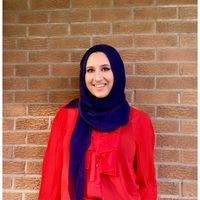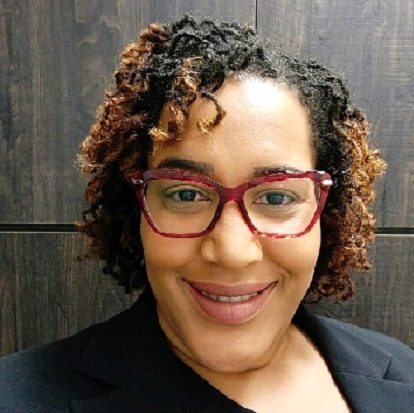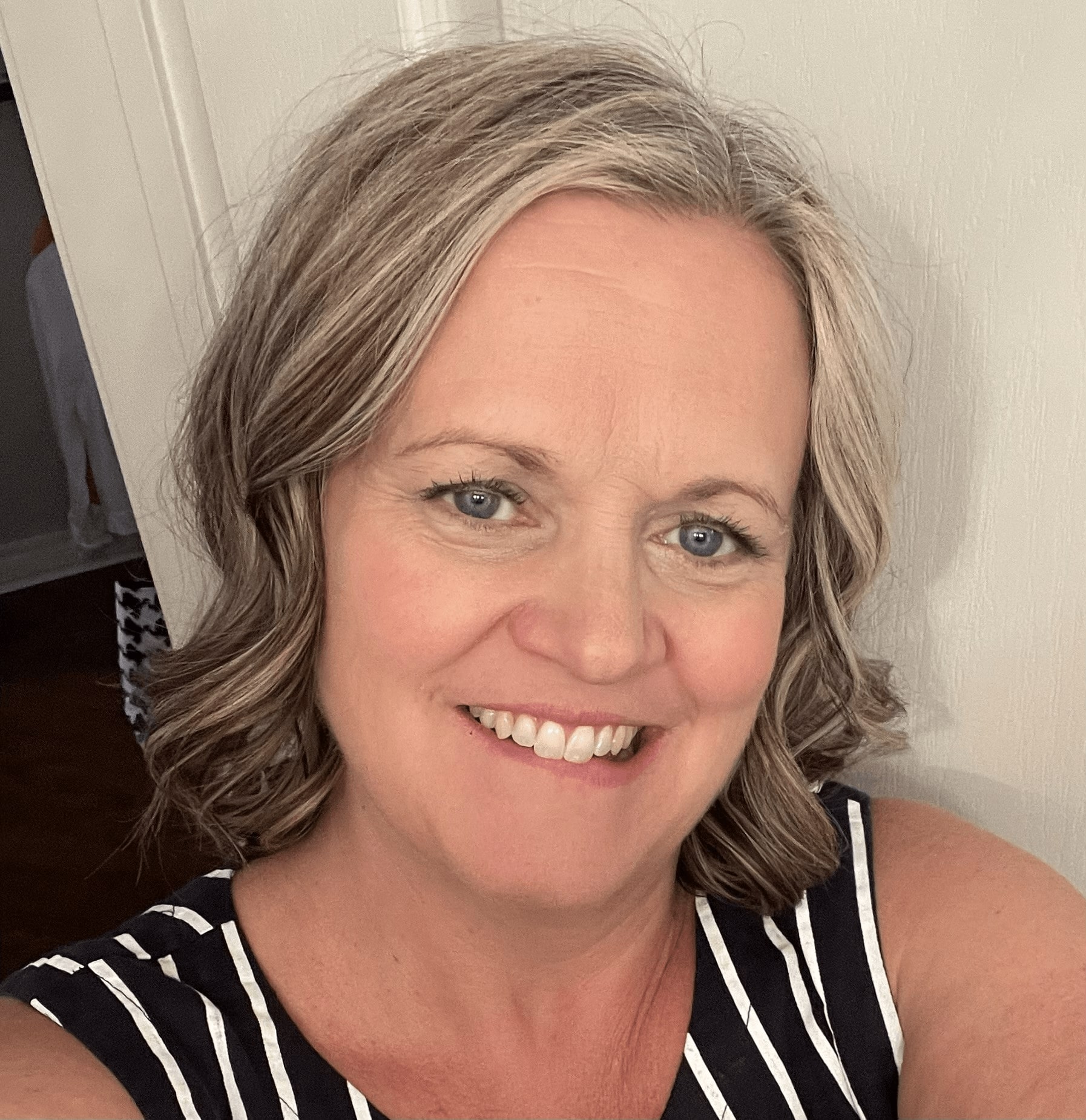Bethany Gallant, Education Assistant Diploma, 2023

Online
Full-Time
41 weeks
(Including breaks)
Part-Time
60 weeks
(Including breaks)
$40 (Domestic)
$140 (International)
$6,900 (Domestic)
$8,625 (International)
+ textbook fee
~$400
Start Date
SPRING SEMESTER
Full-Time
Program Duration: May 6, 2024 – February 28, 2025
Synchronous: Mondays, Wednesdays, and Fridays; Times: 8:30 am to 12:30 pm PST
Asynchronous: Tuesdays and Thursdays
Practicum: January 20, 2025 – February 27, 2025
All synchronous sessions are recorded and are available for asynchronous viewing for seven days after the synchronous session.
Apply NowSUMMER SEMESTER
Part-Time
Program Duration: July 15, 2024 to September 19, 2025
Synchronous: Mondays and Fridays; Times: 5:00 pm to 9:00 pm PST
Asynchronous: Wednesdays
Practicum: April 28, 2025 to June 5, 2025
Download Brochure
Bethany Gallant, Education Assistant Diploma, 2023
Very convenient, online classes were fun, and student services was great.
Lianna Rossander – EAD Alumni, 2022
It was such a great experience being in the Ashton program! I love the way they arrange the EA program. Also, courses 103-104 were a wonderful experience by Todd Schleyer! He is one of the best teachers who knows his students well and makes strong relationships with his students. Thanks, Ashton College being trustable and supportive.
Sara Soleymani – EAD Alumni, 2022
The Education Assistant Diploma helps students learn how to work with people who have disabilities. The online program focuses on the most common disabilities and their effects on a person's development, abilities, and education. The goal of the Education Assistant Diploma is to help students become better equipped to work with individuals with special needs by teaching them different support and educational strategies.
Education Assistants need to be able to understand disabilities in detail, as well as have a lot of knowledge about educational and developmental strategies. This is why education becomes a crucial component that prepares future Education Assistants for a successful career.
At the end of the Education Assistant Diploma, students will be able to demonstrate the following:
Knowledge
Skills
Attitudes
Graduates of the program will be able to obtain a position as an Education Assistant in either private or public school settings. Other educational fields include:
The demand for education assistants, either across the province or territories or in each specific school district, is dependent on budget priorities, student enrollment, inclusion policies, and other hiring factors. Qualifications and hiring processes for education assistants may vary between school districts.
This course in psychology is designed to give the student the factual foundation in techniques. Through the study of human behaviour and mind, students will gain insights into the history of the field of psychology and will explore the past and current theories in such areas as cognition, motivation and wellness.
Course Prerequisites
None.
Learning Objectives
Upon completion of this course, the successful student will have reliably demonstrated the ability to:
This course focuses on research and theory and uses fundamental developmental issues as a foundation for integrating studies and for demonstrating how complementary research methods work together. It also demonstrates that the results of child-development research can be used to enhance the lives of children and their families. Students will increase their current knowledge of human development in the domains of physical, cognitive, social and emotional growth from infancy to adolescence.
Course Prerequisites
None.
Learning Objectives
Upon completion of this course the successful student will have reliably demonstrated the ability to:
This course introduces students to a variety of low and high incidence disabilities, such as visual and hearing impairments, significant developmental delays, complex health issues, serious physical impairments and multiple disabilities. Extra syndromes covered in this course, outside of the textbook, are Angelman Syndrome, PKU and Fragile X.
Course Prerequisites
None.
Learning Objectives
Upon completion of this course, the successful student will have reliably demonstrated the ability to:
Continuing from Disability Studies I (EA 102), this course is a thorough introduction to the field of disabilities across the lifespan, from early childhood to adulthood. Topics include service delivery models, speech and language disorders, cultural and linguistic diversity as applied to learning disabilities, emotional and behavioural disorders, classroom management, universal design, special gifts and talents and working with families. Extra syndromes covered in this course, outside of the textbook, are Cornelia de Lange, Dup15Q and Prader-Willi Syndrome.
Course Prerequisites
None.
Learning Objectives
Upon completion of this course, the successful student will have reliably demonstrated the ability to:
This course introduces students to Autism Spectrum Disorders (ASD), its prevalence, history, treatment methods, strategies and interventions. Students will put together resource materials for use in their field of practice.
Course Prerequisites
None.
Learning Objectives
Upon completion of this course, the successful student will have reliably demonstrated the ability to:
This course introduces students to Fetal Alcohol Spectrum Disorders (FASD), its prevalence, history, treatment methods, strategies and interventions. Students will put together resource materials for use in their field of practice.
Course Prerequisites
None.
Learning Objectives
Upon completion of this course, the successful student will have reliably demonstrated the ability to:
This course will emphasis Applied Behaviour Analysis, Positive Behaviour Supports and Functional Behavioural Assessments (POPARD). These traditional and current behaviour management philosophies are utilized daily in the dynamic learning environment of which you will be a part of.
Course Prerequisites
None.
Learning Objectives
Upon completion of this course, the successful student will have reliably demonstrated the ability to:
This course will cover Dyslexia, its subtypes and interventions used in the school districts to help students succeed. Topics include the nature of the individual with Dyslexia, the principles of the Orton Gillingham Approach, multisensory instruction, Dyslexia and the brain; and the phonology, structure and history of the English Language.
Course Prerequisites
None.
Learning Objectives
Upon completion of this course, the successful student will have reliably demonstrated the ability to:
This course is designed to show how assistive technology can be used in schools to enhance the teaching and learning of students with disabilities. It addresses the challenge of how teachers and educational assistants can use assistive technology in all kinds of classroom settings both to teach new skills to students and to provide students with access to the general education curriculum.
Course Prerequisites
None.
Learning Objectives
Upon completion of this course, the successful student will have reliably demonstrated the ability to:
This course is designed to give students a variety of workshops that will increase their specialization. Workshops include Floortime, Mindup, Touch Math and more.
Course Prerequisites
None.
Learning Objectives
Upon completion of this course, the successful student will have reliably demonstrated the ability to:
In this course, students will be introduced to their Practicum requirements. Students will also get an overview of the working environment by discussing the various levels of support in the education system. Throughout this course, the role of the Education Assistant is emphasized. This course is designed to prepare students for their Practicum experience.
Course Prerequisites
EA 100, EA 101, EA 102, EA 103, EA 104, EA 105, EA 106, EA 107, EA 108, and EA 109.
Learning Objectives
Upon completion of this course, the successful student will demonstrate:
View practicum guidelines and FAQs: www.ashtoncollege.ca/practicum-and-community-field-experience/
This practicum offers the opportunity to integrate theory and skills in a supervised practice experience in a school setting (K-12). This practicum experience is a total of 144 hours. Dependent on school district, practicum may consist of one-6 week practicum or two-3 week practicums.
Course Prerequisites
EA 100, EA 101, EA 102, EA 103, EA 104, EA 105, EA 106, EA 107, EA 108, EA 109, and EA 110.
Learning Objectives*
Upon completion of this course, the successful student will have reliably demonstrated the ability to:
After completion of the practicum, students must complete a practicum report using the templates provided and hand their report to their instructor for final grading. After all reports have been submitted and graded, a feedback session will be held with the instructor.
Course Prerequisites
EA 100, EA 101, EA 102, EA 103, EA 104, EA 105, EA 106, EA 107, EA 108, EA 109, EA 110, and EA 111.
Learning Objectives*
Upon completion of this course, the successful student will have reliably demonstrated the ability to:
Subject to change without notice
 Michelle Hildebrandt
Michelle HildebrandtMichelle Hildebrandt has been working in the field of Applied Behaviour Analysis since 2016 and has been a Registered Behavior Technician (RBT) since 2018. She is currently pursuing her Master’s Degree at Western University in Professional Education with a specialization in Applied Behaviour Analysis. Michelle has worked with both children and adults diagnosed with developmental disabilities. She currently works at a day centre providing behaviour-analytic services to adults diagnosed with Autism Spectrum Disorder (ASD).
 Paula Leach
Paula LeachPaula Leach has a passion for education and supporting learners. She has a Master’s Degree in Special Education and has worked as a special education teacher for nine years in schools across British Columbia and Saskatchewan. Before this experience, she worked as an education assistant for middle school and high school students and through an elementary behaviour support program.
 Paige Leung
Paige LeungPaige Leung began her career in applied behaviour analysis as a home-based behaviour interventionist, where she found her passion working with children and their families. She now has a Bachelor of Arts in Child and Youth Care and a Master of Arts in Special Education with a concentration in Applied Behavior Analysis. Since completing her education, Paige has become a Board Supervised Behavior Analyst (BCBA) where she continues to work in both clinical and private settings.
 Valerie Ostara
Valerie OstaraValerie Ostara’s career started as a Youth Worker and has evolved into working as a Life Skills Coach, Special Education Teacher (Mental Health and Behavioural programs), counsellor, anxiety specialist, and Human Services instructor at schools across Alberta. She has her Bachelor of Arts in Education with a focus on Secondary Alternative Education and Counselling, Atypical Adolescents and a Bachelor in Child and Youth Care from MacEwan University. She is looking forward to teaching and mentoring students in their learning journeys.
 Loraine Regisford
Loraine RegisfordLoraine Regisford has a Master’s of Education Degree, a Bachelor of Arts in Public Administration, and a Diploma in Community Development. She also holds numerous certifications applicable to the Human Services environment. Loraine has been teaching post-secondary for several years. With over 30 years of experience in Human Services, she has significant experience working within the public and private sectors. Her career has allowed her to work with a variety of clients and within diverse communities.
 John-David Robb
John-David RobbJohn-David has worked in education for close to 20 years in different capacities ranging from Educational Assistant to ESL teacher. He holds a Master’s in Education and currently sits on a panel with the Geneva Centre for Autism. He has also completed introductory training with the Hadley School for the visually impaired and Applied Behaviour Analysis (ABA) training.
 Todd Schleyer
Todd SchleyerTodd Schleyer (BA, Cognitive Behavioral Psychology) has worked as a District Behavioural Resource and SEL educator/facilitator to over 100 schools in his local school district. He has over 20 years of experience working with children and adults in the field of special education, community mental health and developmental disabilities.
 Heelai Temor
Heelai TemorHeelai Temor has a Bachelor’s Degree in Sociology and Environmental Studies from the University of Toronto, a Post-Graduate Certificate in Behavioural Science with Honours from Humber College, and has recently completed her Bachelor of Professional Studies (Primary/Junior) from Niagara University. Currently, Heelai is a teacher with the Peel District School Board and has been working with grade four students as a homeroom teacher for the past two years.

Alyssa Schienbein is passionate about working in the area of child development with people who have exceptionalities. From anxiety to Down’s syndrome to cerebral palsy to trauma, Alyssa is versed and continually learning. Her goal is to provide fun, engaging, and educational activities that help target lagging skills. Alyssa creates an inclusive and welcoming environment and strives to provide top quality education in her programs.
As an educator she specialises in creating unique learning opportunities to enhance important skills like literacy, numeracy and motor skills and movement. In addition to working as an elementary school teacher, she has spent the last 9 years working with people with exceptionalities ranging from ages 4 to 84. As a Care Aide and Respite Worker, Alyssa has been able to connect on a personal and professional level – gaining increased admiration and understanding with each new client.
Alyssa has a Bachelor of Education, a Special Education Certification and has completed a Master of Special Education and Educational Psychology from the University of Saskatchewan.
 Camece Samms
Camece SammsCamece holds a Child and Youth Work diploma, Social Service Worker diploma and a certificate in Children’s Mental Health. Most recently, she graduated from the University of Guelph-Humber with a BASc in Family and Community & Social Services.
She worked as a Special Needs Educational Assistant with Peel District School Board for 13 years. During her time at PDSB, she worked in various roles such as: Focus on Youth Program Assistant, Learning Recovery Tutor, Professional Learning Module Facilitator and finally Work Experience Coordinator. In this role, she assisted special needs students ages 19-21 with securing work experience and worked with local businesses to promote, develop, and implement employment experiences for students. Camece has transitioned to working in the Career & Employment Sector and has worked as a Resource and Information Specialist and is now a Co-op Consultant at Georgian College.
Her desire to see individuals overcome barriers to achieve their true potential is what drives her in her day to day work. She is looking forward to empowering students at Ashton College.

Jennifer O’Brien is a passionate educator who has been working in the field for almost 23 years. She holds a Bachelor Degree as well as a Master of Education from Memorial University of Newfoundland in St. John’s and currently works for the Fort McMurray Catholic School District as a Classroom Support Teacher. Over the years, Jennifer has worked in a variety of educational settings with students in the Early Entry Program through to grade twelve. Her goal is to guide and inspire teachers and educational assistants to grow their inclusive practices and strategies while supporting students with a variety of developmental disabilities. As a parent of two teenagers with special needs, she understands how impactful the appropriate support can be on student learning and mental health. Jennifer strives to create comfortable and safe learning environments where students are not only challenged but also empowered to be at the centre of their own learning and actively engaged. She is excited to begin this new chapter of her career at Ashton College!

Child and Youth Care Practitioner, Education Assistant
Desroy Headley holds a Bachelor of Education, an Advanced Diploma, and a Master of Arts in Child and Youth Care. He is currently completing a certificate program in Behavioural Health. As a Practitioner, he has worked in community-based counselling, primarily offering mental health support to children, adolescents, and families with complex needs related to family issues, bullying, discrimination, substance abuse, and mental health challenges.
In his scope of practice, Desroy has worked in group homes, IBI centres, schools, and mental health organizations, providing mental health support and clinical guidance through a range of therapeutic approaches and modalities. These encompass Art and Play Therapy, DBT and CBT, Mediation and Talking Circles, and Wrap Around Therapy, among others. Desroy also provides therapeutic assistance to children, families, and adults with ASD, ADHD, and FASD, remaining fervently committed to supporting the developmental disabilities sector.
In his practitioner role, Desroy has also devised crisis response plans and programs tailored to meet the specific needs of the individuals and families under his care. He has also extended his mental health care and support to Northern Indigenous communities, serving youth and families. Through these diverse experiences, he has cultivated a deep passion for mental health and trauma work, which is integral to his identity as both a practitioner and an educator.

Megan Delcourt – Pereira is excited to join the faculty at Ashton College. With 15 years of experience in the public education sector, Megan looks forward to offering insight and evidence-based methodologies to students. She holds both an undergraduate and postgraduate degree in Psychology and is currently a PhD candidate.
Megan’s goal is to inspire and challenge those entering the public education sector, providing them with the tools necessary to support and serve children and adolescents with a variety of exceptionalities. Together with her students, she wants to learn, grow, and inspire each other.
Some of Megan’s passions include cottaging, photography, animals, design, travel, and working with hard-to-serve children and youth.

Zeinab Chalhoub has worked with individuals with Autism and Attention Deficit Disorder for over ten years. Her career began in her hometown in Ontario, where she trained and worked with individuals with a wide range of disabilities. Her previous role as co-director at Autism Services Inc. allowed her to work and train staff members who were upcoming in the field of Educational Assistants.
Zeinab has experience working in classroom and therapeutic/clinical settings, implementing applied behavioral analysis strategies. As a long-term respite worker and Instructor therapist, she is driven to support all students and enhance their learning potential to the best of her abilities. As an Ontario Certified Teacher, Zeinab enjoys working with students and facilitating a classroom environment that is welcoming and inclusive to all her learners.
Zeinab graduated from the University of Windsor, Ontario, with a bachelor’s degree in Movement Science (Kinesiology), minoring in Psychology. She also holds a bachelor’s degree in education and is a certified trainer in Behavior Management Systems.

Carlye is originally from the UK and started her career as an Education Assistant. After working with a number of students diagnosed with Autism, she later moved to London to work in a specialist Autism, Communication, and Behavioural School to better understand the needs of students and their families. She then had the opportunity to complete her teacher training through a Graduate scheme, which enabled her to train as a Special Education Teacher. Alongside this, she obtained a Postgraduate Diploma in the Psychology of Education and was also a student Research Assistant, contributing to a published paper about Autism and Mental Health. Before leaving the UK, she worked as a Classroom Teacher, Subject Coordinator, Staff Governor, and Trainee Teacher Mentor.
Since moving to Canada, Carlye has continued to work within the Autism Community here in BC through a number of different roles. These include Program Facilitator, Intergenerational Sing & Sign Teacher, Family-School Liaison Consultant, Transition Specialist, Neurodiverse Early Years & Events Coordinator, and Neurodiverse Office & Resources Coordinator. Carlye currently works as a Positive Behaviour Consultant, supporting families who need additional support.
Throughout her work, Carlye believes that a positive relationship with her students and their families is key. She strives for a collaborative approach through transparent communication and mutual respect, taking into account everyone’s goals, strengths, and preferences as much as possible, especially those of the child or young person. Carlye is extremely passionate about teaching, as it’s in her DNA as a 3rd Generation Teacher. With 15 years of experience in the field, she cannot imagine doing anything else in this challenging yet rewarding career.
She is looking forward to sharing her knowledge and experiences with others so that they too have the right tools and approaches to make a difference to children and young people within our community. It is an honour to have the opportunity to inspire the next generation of Education Assistants, Teachers, behaviour and Communication Specialists, and beyond.

Anne Miller has been working in the field of Education and Applied Behaviour Analysis since 2000. She holds a Master of Science in Teaching, is a member in good standing of the Ontario College of Teachers, and is a Board Certified Behaviour Analyst.
Anne has experience supporting individuals with multiple exceptionalities, including ASD, FASD, ABI, Trauma, and Intellectual Disabilities. She is passionate about the use of Applied Behaviour Analysis and Positive Behaviour Supports to prevent and reduce student problem behaviour while increasing communication, coping, and self-regulation skills.
Anne works full-time as a Behaviour Analyst with the Simcoe County District School Board and provides professional development learning opportunities to educational assistants, teachers, and administrators. Her passion has always been in education, and she looks forward to sharing her experience with the students at Ashton College.
Domestic students need ONE of the following:
And you must prove the following:
Are you a domestic student?
You must show your language proficiency in ONE of the following ways:
English is presumed to be the language of instruction in the following countries:
American Samoa, Anguilla, Antigua and Barbuda, Australia, Bahamas, Barbados, Belize, Bermuda, Botswana, British Virgin Islands, Cayman Islands, Dominica, Falkland Islands, Fiji, Gambia, Ghana, Gibraltar, Grenada, Guam, Guyana, Ireland, Jamaica, Kenya, Lesotho, Liberia, Malta, Mauritius, Montserrat, New Zealand, Nigeria, Seychelles, Sierre Leone, Singapore, South Africa, St Helena, St. Kitts and Nevis, St. Lucia, St. Vincent & The Grenadines, Tanzania, Trinidad & Tobago, Turks and Caicos Islands, Uganda, United Kingdom, United States of America, US Virgin Islands, Zambia, Zimbabwe
Approved English Language Proficiency Tests and Scores
International students need:
And you must prove the following:
Are you an international student?
You must show your language proficiency in ONE of the following ways:
English is presumed to be the language of instruction in the following countries:
American Samoa, Anguilla, Antigua and Barbuda, Australia, Bahamas, Barbados, Belize, Bermuda, Botswana, British Virgin Islands, Cayman Islands, Dominica, Falkland Islands, Fiji, Gambia, Ghana, Gibraltar, Grenada, Guam, Guyana, Ireland, Jamaica, Kenya, Lesotho, Liberia, Malta, Mauritius, Montserrat, New Zealand, Nigeria, Seychelles, Sierre Leone, Singapore, South Africa, St Helena, St. Kitts and Nevis, St. Lucia, St. Vincent & The Grenadines, Tanzania, Trinidad & Tobago, Turks and Caicos Islands, Uganda, United Kingdom, United States of America, US Virgin Islands, Zambia, Zimbabwe
Approved English Language Proficiency Tests and Scores
Do you identify as a mature student?
To qualify, you must meet the following requirements:
Application Requirements
Mature Students must submit ALL of the following:
Additional Requirements
You must meet all of the program-specific and non-academic requirements where listed. In some cases, you may need to complete a placement exam to determine academic readiness.
Applicants should also provide the following additional documents. These additional mandatory requirements apply prior to commencing practicums and not at the time of admission.
Tuition fees for the program are payable in instalments. The first instalment is due 2 weeks prior to the start date. Students with guaranteed funding arrangements will be exempt from this requirement provided they produce proof of funding before the cohort start date. International students are required to pay tuition fees in full at least two weeks prior to the start date.
All formats of the program are eligible for Canada Student Loans, other forms of government funding, and bank financing. However, students are responsible for making their own funding arrangements and are advised to contact the relevant funder well in advance of the start date to make an application.
Application and tuition fees for this program are as follows:
Note: Tuition fees do not include the cost of the required textbooks. The approximate textbook fee is $400.
Ashton College does not sell textbooks directly. Students are required to purchase their textbooks through third-party vendors.
Get the Best of Both Worlds: Live and Asynchronous Learning at Ashton College
Ashton College understands that everyone learns differently, which is why we offer a unique blended learning approach for our live online courses. This approach combines the real-time interaction and immediate feedback of live sessions with the flexibility and self-paced learning of asynchronous materials.
Experience the benefits of both worlds:
Live Online Sessions:
Interact with instructors and classmates in real-time using interactive sessions, breakout rooms, and screen sharing.
Get instant feedback and ask questions for a deeper understanding.
Asynchronous Learning:
Learn at your own pace with recorded lectures, online readings, and discussion forums.
Review materials as needed and revisit difficult concepts for better comprehension.
We encourage you to participate in both components to maximize your learning experience:
Enjoy the interactivity and community of live sessions.
Benefit from the flexibility of studying at your own pace.
Technical Requirements:
Computer System: Fully functional computer with webcam, speakers, and microphone (headset recommended).
Internet Connection: Reliable high-speed internet connection.
Device: While accessible on smartphones and tablets, we recommend using a laptop or desktop computer for a better learning experience.
This program was reviewed and approved by the Registrar of the Private Training Institutions Branch of the Ministry of Advanced Education and Skills Training.

Oops! We could not locate your form.
